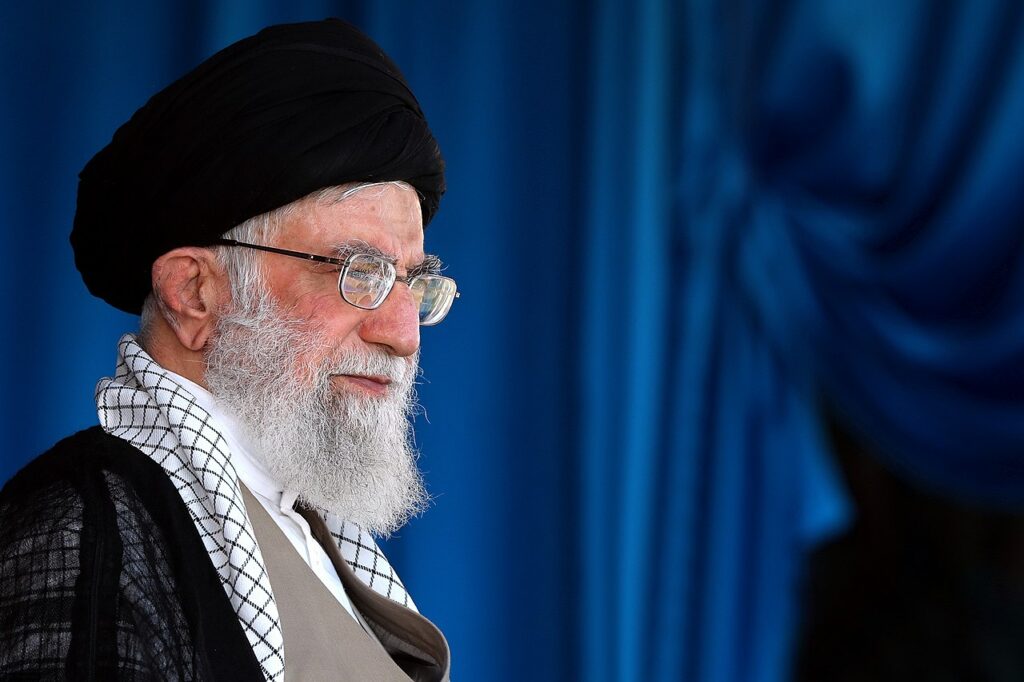
(Scypre.com) – As the conflict between Israel and Iran intensifies, Iran has delivered a dire warning to the United States: any direct military intervention will result in an “all-out war.” This threat comes as Israeli airstrikes continue targeting Iranian nuclear infrastructure, and tensions escalate to levels unseen in recent years. Iran’s Foreign Ministry spokesman, Esmaeil Baghaei, declared in an interview with Al Jazeera that any move by the U.S. to become directly involved in the conflict would trigger a full-scale regional war. This warning was echoed by Iran’s ambassador to the United Nations, who emphasized that Tehran would not only respond to Israeli aggression but would treat U.S. intervention as a hostile act warranting severe retaliation.
Iran’s Supreme Leader, Ayatollah Ali Khamenei, delivered a televised address reaffirming the country’s refusal to back down. He stated that Iran would “never surrender” to foreign pressure and warned the United States of “irreparable damage” if it chose to enter the conflict militarily. Khamenei also made it clear that Israel would face significant consequences for its actions, reinforcing Iran’s position of resistance amid mounting international scrutiny. His message, aimed both at the domestic audience and the international community, signals Tehran’s commitment to maintaining its nuclear development program, which it insists is for peaceful purposes despite widespread concern.
The military situation continues to escalate rapidly. Overnight, Israeli forces struck multiple Iranian facilities, including the TESA Karaj centrifuge workshop and a research center in Tehran—both of which are monitored by the International Atomic Energy Agency. These attacks have reportedly damaged key components of Iran’s nuclear infrastructure. In retaliation, Iran launched missile barrages at several Israeli cities. While many of the projectiles were intercepted, the attacks resulted in the deaths of at least 24 people, including foreign exchange students and civilians, further inflaming the situation.
Meanwhile, the United States has repositioned military assets, including refueling tankers and fighter aircraft, to strategic locations in Europe and the Middle East. Although President Trump has not formally committed to direct military action, he has emphasized that all options remain on the table. Trump’s administration is closely monitoring developments, and he has called for Iran’s “unconditional surrender” while also urging calm among allies. Despite this, U.S. officials have stated that there are currently no concrete plans for direct engagement in the conflict, although the situation remains fluid.
The global community is reacting with urgency. European leaders, along with officials from China, Egypt, and Germany, are calling for immediate de-escalation and a return to diplomatic dialogue. In a significant geopolitical development, several Gulf Arab nations have reportedly declined requests to allow U.S. military operations to launch from their territories, underscoring the broader regional reluctance to be drawn into a direct conflict. These countries are increasingly wary of becoming battlegrounds in a war they fear could engulf the region.
The potential consequences of U.S. involvement are grave. Experts warn that direct intervention could trigger a wider war that draws in proxy forces across the Middle East. With Israeli strikes already targeting nuclear-linked sites and Iran doubling down on its enrichment efforts, fears of a nuclear crisis are growing. Oil markets are reacting nervously, and global supply chains could be disrupted if hostilities expand to the Persian Gulf, where much of the world’s oil traffic flows. As military posturing continues and diplomatic channels strain under the pressure, the world watches anxiously. Whether cooler heads will prevail or the region will descend into broader conflict remains to be seen.